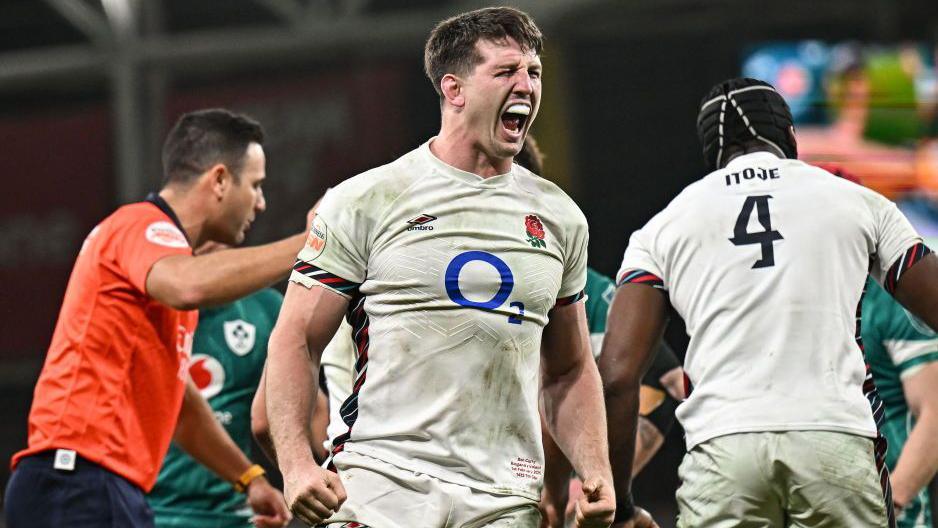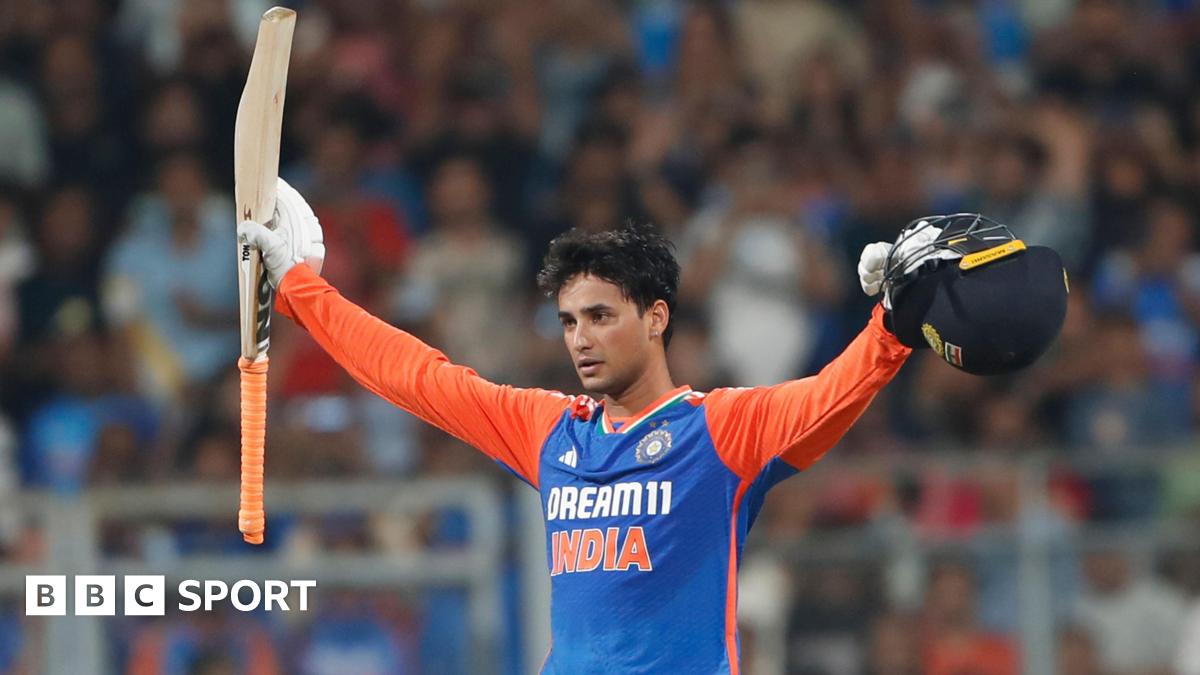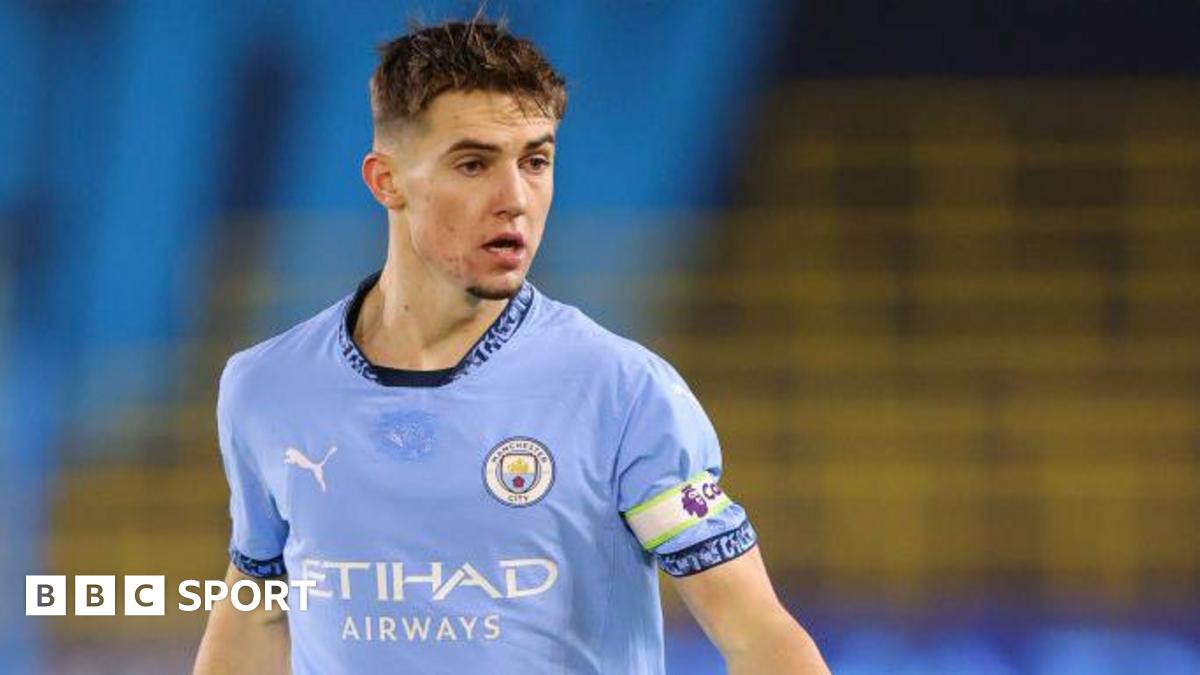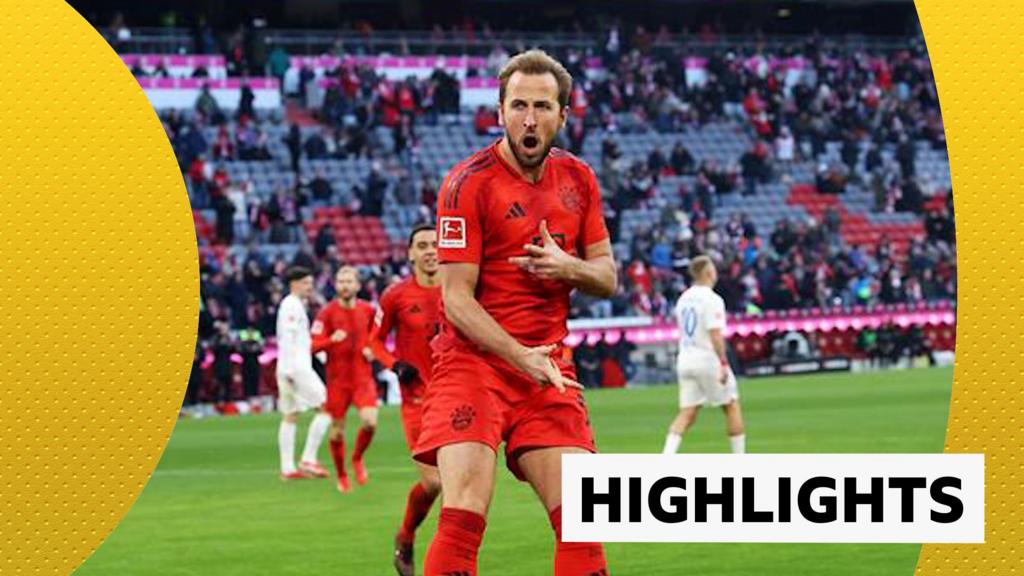ARTICLE AD BOX
 Image source, BBC Sport
Image source, BBC Sport
There was a moment in Ireland's win over England that can't be overlooked.
Midway through the first half, with England seven points up but stretched, Marcus Smith killed the ball illegally.
Referee Ben O'Keefe showed him yellow, leaving England facing 10 minutes with only 14 men and no fly-half away to the Six Nations champions.
England defended superbly, however. They kept Ireland at bay for nine minutes and 30 seconds. Smith was poised on the sidelines, ready to come back on. And then, as the fatigue built up by that rearguard effort told, England faltered.
England scrum-half Alex Mitchell squared up against James Lowe out wide. He did the right thing, using the touchline and not over-committing, which would allow Lowe to step him. Mitchell got his hands on Lowe, but was so drained by the defensive effort that he couldn't chase up his legs to reel in the Ireland wing and bring him down.
Instead, Lowe broke free, fed Jamison Gibson-Park and Ireland were back within two points.
Had Smith got back on and brought England up to their full complement with their seven-point lead still intact, it might well have been a different game. A bigger half-time lead would have boosted England's confidence. Ireland might have got tighter.
In the end, the game took a very different path.
Ireland start title defence with convincing win over England
Ireland accelerated away from England, scoring 22 unanswered points in as many minutes in the second half.
It isn't the first time England have faded in the second half. It was a feature of their autumn defeats by New Zealand, Australia and South Africa. I think there are two aspects to it.
Firstly, their gameplan is very demanding. Perhaps too demanding.
In defence, they come up with a lot of line speed, phase after phase. Then in attack, they are focusing on moving the ball, involving forwards and backs. It can feel frenetic and frantic, burning through energy. It is certainly hugely ambitious. Ultimately I think they pay for it in the back end of games.
There needs to be someone who calms down the team and, occasionally, takes pace out of the match. At the moment, they are wedded to this all-action plan A, which is effective but very hard to sustain over the course of 80 minutes without a bench who can replicate what the starting team have done.
There was a stoppage in the second half, when Ireland were ahead, but the game was still in the balance, during which England's players were standing around in ones and twos having conversations, rather than getting huddled up and working out where they can get back at Ireland.
Every team has to face those moments and it is up to the number eight and half-backs as much as the captain to bring everyone together to work out a strategy and get on the same page.
As I alluded to, the second part of England's tendency to peter out of games is what should be part of the solution - the replacements.
I thought Fin Smith added to England when he came on in the final 15 minutes. There is something about him. He is supremely composed and invariably picks good options to keep the team moving forward in attack.
Borthwick 'proud' of England despite loss to Ireland
Otherwise, England's replacements didn't do enough to alter the flow of the game. They came on and played as a series of cameos, rather than a concerted force to change tactics that had run their course.
Ireland's replacements were different. Dan Sheehan, Cian Healy, Iain Henderson, Jack Conan, Jack Crowley, Robbie Henshaw - these are all high-level, experienced operators.
By the time they arrived on the pitch, Ireland had shown their adaptability and nous.
England's back row of Ben Earl, Tom Curry and Ben Curry posed a significant jackal threat, spreading across the width of the pitch, meaning one was always on hand to disrupt the breakdown.
But Ireland solved the puzzle, narrowing their attack to the same point over multiple phases, ensuring quicker recycling and sucking in England to open gaps out wide.
 Image source, Getty Images
Image source, Getty Images
Ben Curry was replaced after an hour, but led England's defensive stats, making 21 tackles without missing one
Chandler Cunningham-South came off the bench and, while he is a powerful athlete, he couldn't get into the match. He gave away a penalty for tackling an airborne Hugo Keenan before a bad defensive read opened the way for Lowe to canter through and set up Ireland's third try.
I have liked what I have seen of Ted Hill this season playing for Bath - he might be the beneficiary if Borthwick opts against Cunningham-South in the matchday squad to face France.
What England need most though is a quality that doesn't show up in many stats that modern coaches consider - the ability to step up and seize a moment when the stage is the biggest.
Dan Luger was an example from back in the day. He was a good winger for Harlequins and Saracens, but in an England shirt he found another level to go to.
Ollie Chessum, whose season has been disrupted by a knee injury, is one of the current players who seems to have that ability, but many of England's squad are struggling to lift themselves beyond their club form while playing for their country.
France coming to Twickenham next is another huge test for England. I would keep the starting XV from this defeat - the spirit and energy in the first half was something to cling on to.
Switching Marcus Smith to full-back would put England's most reliable game-breaker too far from the action. Ireland also had some success peppering him with high balls in the backfield. France would surely follow suit.
England have to reflect on the first half, because there was enough in that 40 minutes to maintain positivity.
And if they can do that they can perhaps get on the right side of both those sliding-doors moments and the scoreline.
Dawson and Bowe react after England loss to Ireland

 3 hours ago
1
3 hours ago
1








 English (US) ·
English (US) ·